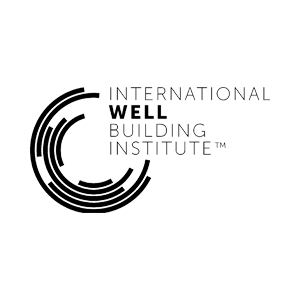
Research is Power: Design’s Impact on Health and Well-being
-
You must log in to register
- Guest - $59
- ASID Member - Free!
Apply the most effective, research-based solutions for your clients to positively impact human health and well-being.
Continuing Education Approval
- 1 IDCEC CEU | HSW | CC-113115 (Your CEU will be reported to IDCEC on your behalf.)
Supported By

Description
Hear from two leading researchers examining the intersection of design, public health and well-being in an informative discussion moderated by the International WELL Building Institute’s Chief Commercial Officer Jessica Cooper, a licensed designer herself. Learn how our internationally recognized panelists translate research into practical application, highlighting the impact of design solutions on the human experience. Their conversation focused on the evolving effects of COVID-19, how designers can make research-based arguments demonstrating the critical impact of design on our mental health and the critical research questions for which we are still seeking answers.
This is a recording of a webinar presented on September 16, 2020.
What You Will Learn
- Identify sources of research to inform your design solutions
- Gain tips to translate research on indoor air quality into actionable design solutions
- Recognize the criticality of design’s impact on mental health in these stressful times
- Articulate examples of good design practices developing as a result of COVID-19
Access Period: One year from date of registration.
Susan Chung, Ph.D., WELL AP, Allied ASID
Associate Director of Enterprise Research, HKS
Dr. Susan Chung is the Associate Director of Enterprise Research at HKS. Leading enterprise programs for deep-dive research and development at a global architecture and design firm, she strives to enhance the synergies between research and design through communication and outreach. Susan’s experience in comprehensive workplace research studies in living laboratory settings speaks to her passion for translating research into action and advocacy for evidence-based and outcome-driven design practices. She previously worked as the Vice President of Research & Knowledge at the American Society of Interior Designers (ASID) leading impactful research to advance the built environment industry. Her scholarly research is focused on creative performance and its relationship with physical and social environmental conditions and received her doctorate in Human Behavior and Design from Cornell University.
Jessica Cooper, LEED AP, WELL AP (Moderator)
Chief Commercial Officer
International WELL Building Institute
As Chief Commercial Officer at the International WELL Building Institute (IWBI), Jessica Cooper oversees the end-to-end customer experience with WELL, enhancing human health and wellness through the built environment. Before joining IWBI, Jessica served as Executive Vice President and Director of Sustainability at Delos, leading the Delos Solutions team and working with clients to create environments promoting occupant well-being.
Jessica is a WELL Faculty and WELL Accredited Professional. She is a LEED AP, holds a certificate in Green Professional Building Skills Training: Construction Management and is a licensed interior designer. She graduated from Cornell University with a Bachelor of Science in Design and Environmental Analysis.
Whitney Austin Gray, Ph.D., LEED AP, WELL AP, WELL Faculty
Senior Vice President, International WELL Building Institute
Standing at the nexus of public health research and the places and spaces where we spend our lives, Whitney Austin Gray has become one of the leading global voices for improving our buildings and communities to help people thrive. As Senior Vice President at the International WELL Building Institute (IWBI), she leads research that supports best practices in building design and operations, community development and organizational policies that can contribute to improved public health for everyone, everywhere. She led the development of the first WELL AP exam, WELL Faculty Program and the first case studies focused on the efficacy of the WELL Building Standard, helping to launch more than 100 educational sessions related to WELL in 25+ countries. Her lectures, webcasts, trainings and published works have touched tens of thousands of design and health professionals worldwide, building a strong infrastructure of support for those who work to advance better buildings, vibrant communities and stronger organizations.
